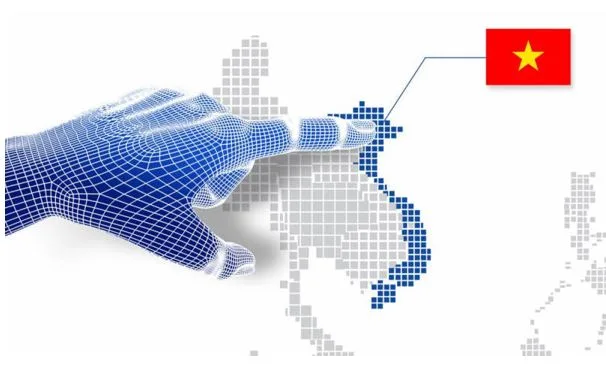Why Vietnam Is Your Next IT Powerhouse: Unlocking Value in Offshore Software Development
As global businesses face mounting pressure to innovate faster and scale smarter, offshore software development is a strategic advantage. In this evolving landscape, Vietnam has rapidly emerged as a top-tier IT outsourcing destination, offering a rare combination of technical expertise, economic efficiency, and global delivery capabilities.
With a tech-savvy workforce, government-backed innovation initiatives, and a thriving ecosystem of software service providers, Vietnam is well-positioned to power the next generation of digital solutions. Let’s explore why this Southeast Asian nation is becoming the preferred partner for companies seeking long-term, scalable tech collaboration.
1. A New Generation of Engineering Talent
Vietnam’s biggest strength lies in its people. Every year, the country produces more than 50,000 IT graduates from top universities such as Hanoi University of Science and Technology, Ho Chi Minh City University of Technology, and FPT University. These graduates are trained not only in core programming languages like Java, C#, and Python, but are increasingly fluent in modern frameworks and tools from React, Flutter, and Angular, to Kubernetes, Docker, and various AI/ML platforms.
Vietnamese developers also bring a strong sense of discipline and adaptability. Thanks to early exposure to global projects, many teams are well-versed in Agile, Scrum, and DevOps methodologies. English proficiency, though variable, continues to improve steadily across the IT sector, making cross-border communication far more effective than in previous decades.
What makes this new generation stand out is a deep hunger for learning. Many developers actively contribute to open-source projects, attend local and international hackathons, and pursue certifications from platforms like AWS, Microsoft Azure, and Google Cloud. The result is a workforce that is not only cost-effective but globally competitive.
2. Affordability Meets Technical Excellence
Let’s be honest: cost still matters. And Vietnam offers a compelling value proposition. Offshore development rates in Vietnam typically range between $20 – $40 USD per hour, depending on specialization and seniority, significantly lower than counterparts in the U.S., Western Europe, or even Eastern Europe and Latin America.
However, the true value isn’t just in lower rates but in the high quality-to-cost ratio. Teams in Vietnam consistently deliver high-caliber code, meet international quality standards, and adopt best practices in testing, security, and deployment. Many providers have embraced continuous integration and delivery (CI/CD), infrastructure as code, and test automation as standard components of their development workflow.
This enables organizations to redirect budget toward customer experience, market expansion, or advanced R&D, rather than spending excessively on overhead.
3. A Supportive Policy Environment for Tech Growth
Vietnam’s government plays an active role in promoting the IT sector. Through a mix of corporate tax incentives, workforce training programs, and digital economy roadmaps, the country has fostered a fertile environment for tech-driven growth.
For example, software outsourcing companies in Vietnam can enjoy tax holidays or reduced rates for several years, particularly if they operate in designated high-tech zones or export-oriented sectors. The “National Digital Transformation Program by 2025” also outlines significant public and private investments in cloud infrastructure, cybersecurity, and AI development.
Additionally, Vietnam secured positions in the top 10 on the Kearney Global Services Location Index (2023), which evaluates countries on talent availability, business environment, financial attractiveness, and digital resonance. This global recognition underscores Vietnam’s maturity as an offshore development destination.
4. Time Zone Synergy and Near-24/7 Development Cycles
Collaboration across time zones used to be seen as a hurdle. However, when managed correctly, it becomes a strategic advantage. Vietnam’s time zone (GMT+7) allows for efficient overlap with teams in Asia-Pacific, Europe, and even North America, enabling companies to build near-24/7 development pipelines.
This model has become particularly attractive for startups and enterprises seeking faster time-to-market. A typical workflow might involve a product manager in California handing off requirements at the end of their workday, which are picked up immediately by a development team in Vietnam. By the time the U.S. team returns the next morning, the code is ready for review.
5. The Power of Distributed Delivery Models
A growing number of Vietnamese software companies have adopted hybrid delivery models, combining offshore development centers with onshore project management and client-facing roles. This approach reduces the friction of working across borders and ensures better alignment with client objectives, especially in complex or regulated industries like healthcare and finance.
PowerGate Software is one such example. Headquartered in Hanoi, with representative offices across the U.S., UK, Australia, and Canada, PowerGate Software blends Vietnamese engineering excellence with global delivery standards. The company specializes in custom software development, SaaS platforms, and enterprise-grade solutions, and holds internationally recognized certifications like ISO 9001 and ISO 27001 for quality management and information security.
What makes PowerGate Software notable is not just its technical range but its track record of delivering scalable products for clients across 20+ countries. By leveraging cloud-native architecture (on platforms like AWS and Azure), localization best practices, and continuous integration pipelines, PowerGate Software helps clients launch truly global-ready software products.
PowerGate Software is a trusted software partner with a global presence that bridges international expertise with local execution
6. Real-World Value and Business Impact
Let’s put theory into practice. Consider a mid-sized fintech startup based in the UK that partnered with a Vietnamese development team to accelerate its product roadmap. By outsourcing core development to a team in Hanoi while retaining product leadership in London, the company was able to:
- Reduce development costs by 45%
- Launch a secure MVP in just four months
- Scale to over 100,000 users within a year
This kind of outcome is becoming increasingly common for businesses that know how to build cross-border collaboration into their DNA.
Offshore software development is no longer just a cost-driven tactic but a strategic component of modern product development. As organizations embrace global team models, they’re looking for partners who offer not just technical skill, but scalability, reliability, and long-term value.
Vietnam has checked all the boxes: a deep talent pool, cost-effectiveness, supportive policy framework, and globally minded development firms. For companies seeking a long-term offshore strategy that balances innovation and execution, Vietnam is no longer an emerging player, it’s a proven powerhouse.
[QM1]http://tinasoft.io/wp-content/uploads/2024/08/1685192896443software-out-sourcing-vietnam.jpg.jpg.jpg
[QM2]http://geospatialworld.net/wp-content/uploads/2021/05/cyber-security-digital-data-protection-concept1-scaled-1.jpg






